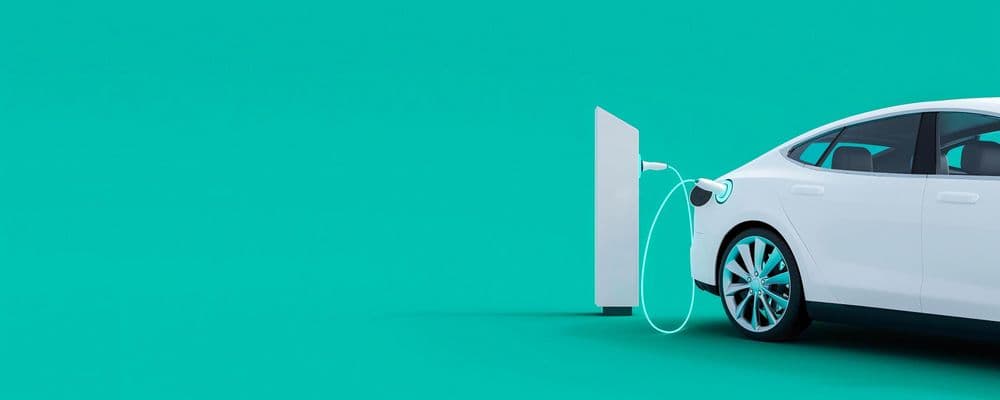Theme

5 min
How Electric Vehicles Will Deliver Major Automotive Monetization Opportunities
Leverage the connectivity that comes as standard in EVs to create new revenue streams as well as enhance and deepen customer experiences.
NNG
12 Oct, 2022
It’s official: Data monetization offers massive potential for automakers and related stakeholders. According to Statista, the global automotive data monetization market is projected to grow from $123 million in 2019 to over $20 billion in 2030. Those topline figures are great news for automakers – but how can they leverage such a lucrative market?
The answer is connected cars capable of monitoring and recording every aspect of their status with the resulting data shared instantly via the internet where appropriate. And, like data monetization, the growth of connected cars is predicted to be huge as well; the 237 million connected cars in 2021 are set to be dwarfed by 2025 with 400 million connected cars on our roads.
Delivering connectivity as standard
Leading this major connectivity push are electric vehicles (EV). As countries commit to banning the sale of internal combust engine (ICE) vehicles, it’s triggered a change in consumer buying patterns with electric car sales doubling in 2021.
And with EVs connecting to the internet by design, it means the new generation of EV drivers are already relying on connected data services to make their driving lives easier, safer and more practical. Think over-the-air system updates or apps that offer crowd-sourced traffic updates, (working) charger point locations, charger types, and much more besides.
Competing services, poor customer experiences
However, there is a problem. A quick dive into any web or app store reveals many, often disparate solutions vying for EV drivers’ attentions. From competing journey planner solutions to rival weather services, drivers are regularly forced to manage multiple offerings and accounts, in turn creating a disjointed and potentially costly customer experience.
To address the issue – and to explore the monetization possibilities of connected cars – automakers and other key stakeholders are increasingly offering access to services via a single unified navigation-related platform instead of a mass of different devices and accounts. These solutions are built-in to the vehicle’s typically multi-screen digital dashboard, with our expertise as one of the best EV GPS specialists often called on to help with design, planning, and execution.
One system, multiple opportunities
Common navigation features are already offered by these platforms – think journey planning, weather, and more. However, the right platform offers the potential in the near future for EV drivers to customize the features they want depending on their specific EV routing needs and usage levels.
This gives automakers an opportunity to plan and deliver a range of optional B2C and B2B plug-in services at additional cost. For instance:
B2C monetization opportunities
In future, chargeable offerings will deploy an e-commerce model that sees the automaker, system integrator, and Tier 2 operators (including NNG) sharing the revenues from app services delivered by the professional EV navigation solution. This will give automakers the ability to:
Enable the driver to pay for, say, parking via the navigation system, negating the need for external devices, apps, and payment systems.
Deliver more social-driven features such as allowing drivers to safely share destinations, personalize interior displays, and even access gamification options including accruing experience points for completing ‘tasks’, i.e., number of cities visited.
B2B monetization opportunities
Critical to monetization’s future success is expanding its reach beyond the B2C market by building partnerships within the private and public sectors. For instance, auto stakeholders could:
Offer predictive maintenance services to fleet managers that allow them to monitor fleet health at a glance, extract information on vehicle statuses and improve overall vehicle health levels, leading to reductions in fleet costs.
Develop a service that provides road friction information and pothole detection based on crowd-sourced data, enabling city authorities to prioritize road repairs as well as deliver in-vehicle warnings to drivers about approaching hazards.
Empower authorities to manage traffic more effectively; for instance, data sourced from EV drivers could be used to re-route vehicles in areas where a high density of traffic is pushing up emission levels.
Partner with insurers to leverage anonymized EV data to help create more targeted insurance products and services.

Navigating into the future
By bringing together multiple services into one place, both the connected private and business EV driver – and related stakeholders – can access the navigation, mobility, and functionality they need at their fingertips. Better still, customers can choose to opt-in to and pay for services as and when required – much like the video streaming service model.
Crucially, so long as the right balance between monetization and functionality is struck, automakers and other EV stakeholders stand to benefit too, able to create new revenue streams while offering experiences that remove friction and distraction from customers’ real-world journeys. Combined, this has the potential to create a win-win situation for customers and EV stakeholders alike, as society continues to make its seismic shift from ICE to an all-electric future.
Would you like to know more?
Get in touch to learn more about our latest products and services or company news


